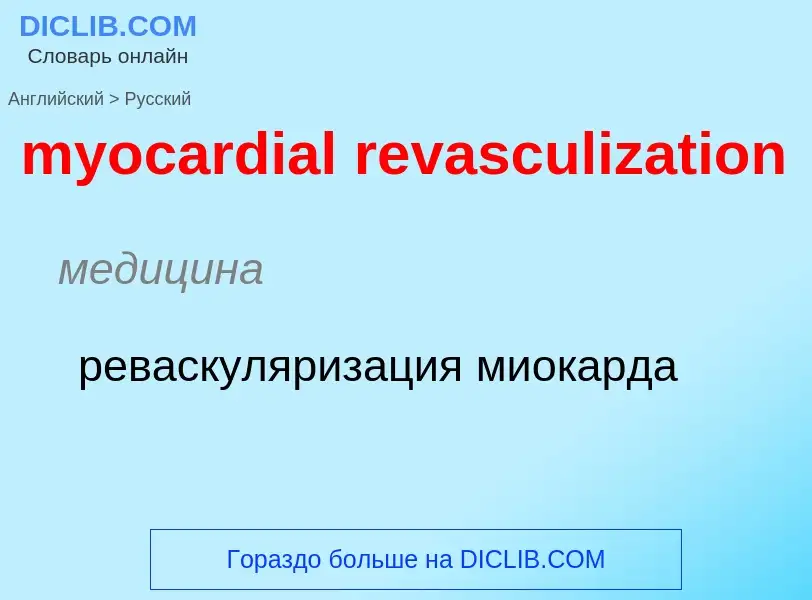Traducción y análisis de palabras por inteligencia artificial ChatGPT
En esta página puede obtener un análisis detallado de una palabra o frase, producido utilizando la mejor tecnología de inteligencia artificial hasta la fecha:
- cómo se usa la palabra
- frecuencia de uso
- se utiliza con más frecuencia en el habla oral o escrita
- opciones de traducción
- ejemplos de uso (varias frases con traducción)
- etimología
myocardial revasculization - traducción al ruso
медицина
реваскуляризация миокарда
медицина
острый инфаркт миокарда
Definición
Wikipedia

Myocardial perfusion imaging or scanning (also referred to as MPI or MPS) is a nuclear medicine procedure that illustrates the function of the heart muscle (myocardium).
It evaluates many heart conditions, such as coronary artery disease (CAD), hypertrophic cardiomyopathy and heart wall motion abnormalities. It can also detect regions of myocardial infarction by showing areas of decreased resting perfusion. The function of the myocardium is also evaluated by calculating the left ventricular ejection fraction (LVEF) of the heart. This scan is done in conjunction with a cardiac stress test. The diagnostic information is generated by provoking controlled regional ischemia in the heart with variable perfusion.
Planar techniques, such as conventional scintigraphy, are rarely used. Rather, single-photon emission computed tomography (SPECT) is more common in the US. With multihead SPECT systems, imaging can often be completed in less than 10 minutes. With SPECT, inferior and posterior abnormalities and small areas of infarction can be identified, as well as the occluded blood vessels and the mass of infarcted and viable myocardium. The usual isotopes for such studies are either thallium-201 or technetium-99m.



![left]] and [[right coronary arteries]] (labelled LCA and RCA). A myocardial infarction (2) has occurred with blockage of a branch of the left coronary artery (1). left]] and [[right coronary arteries]] (labelled LCA and RCA). A myocardial infarction (2) has occurred with blockage of a branch of the left coronary artery (1).](https://commons.wikimedia.org/wiki/Special:FilePath/AMI scheme.png?width=200)


![A 12-lead ECG showing an inferior STEMI due to reduced perfusion through the [[right coronary artery]]. Elevation of the [[ST segment]] can be seen in leads II, III and aVF. A 12-lead ECG showing an inferior STEMI due to reduced perfusion through the [[right coronary artery]]. Elevation of the [[ST segment]] can be seen in leads II, III and aVF.](https://commons.wikimedia.org/wiki/Special:FilePath/Inferior and RtV MI 12 lead.jpg?width=200)
